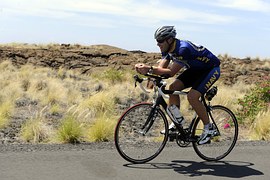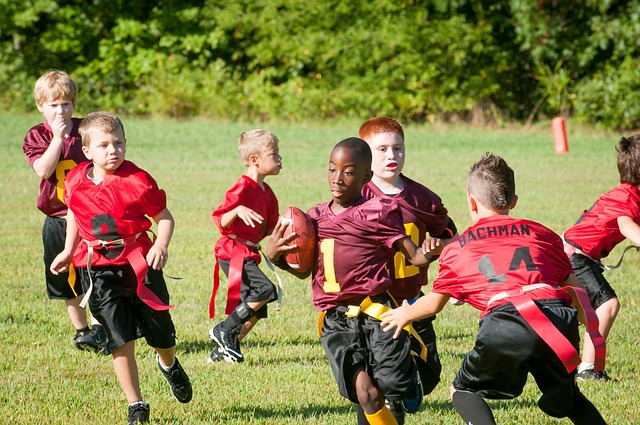Bike Helmets for Brain Safety
To prevent a serious brain injury while biking, skateboarding, or playing football, always wear a helmet.
I love autumn in New England. The weather so far this fall has been picture perfect, crisp but still warm enough to make you want to be outside. Nothing can compare to this place, this time of the year. And apparently I’m not the only one who thinks so, because recently, I noticed dozens of people riding their bikes around my neighborhood. The number of cyclists I saw far exceeded what I’d seen in the first warm days of spring or the steamy afternoons of summer.
 But I was alarmed to note one thing: the majority of bike riders were not wearing helmets, even though Massachusetts is one of many states that has a specific bicycle helmet law. Our law requires that helmets be worn by persons twelve years of age and under. But brain injuries don’t discriminate by age; everyone should wear a bicycle helmet every time they go for a bike ride.
But I was alarmed to note one thing: the majority of bike riders were not wearing helmets, even though Massachusetts is one of many states that has a specific bicycle helmet law. Our law requires that helmets be worn by persons twelve years of age and under. But brain injuries don’t discriminate by age; everyone should wear a bicycle helmet every time they go for a bike ride.
The number one cause of sports-related concussion in the US is bike accidents. Your head is designed to protect your brain. The cerebral fluid around your brain, combined with your skull, scalp and hair will provide sufficient protection if you are running as fast as you can and accidentally hit a solid object, such as a tree. However, when you are riding a bicycle, the force of the impact is far greater than it would be while simply running. Your brain is not adequately protected in the event of a crash. Only by wearing a helmet are you protected from the impact of a bicycle crash.
Do Helmets Really Work?
Research has consistently shown wearing a bike helmet reduces the incidence of concussion and brain injury brain significantly. A famous study in the New England Journal of Medicine showed that riders who wore helmets had their risk of brain injury reduced by 88%. That’s an overwhelming number which has since been backed up study after study. More recently, New York City released statistics showing that 97% of cyclists who died while bicycling in the city were not wearing helmets. Yet people still don’t wear helmets. A 2001-03 national survey in the Journal of Safety Research showed that only 48% of persons aged 5-14 years wore bicycle helmets. And according to The Snell Memorial Foundation and Safety Education Center, the number of bicycle head injuries requiring hospital stays each year is greater than the total of all other head injury cases — including those from baseball, football, skateboards, scooters, horseback riding, snowboarding, ice hockey, in-line skating and lacrosse.
Skateboarding and snowboarding are also designed to propel the human body faster than you can run. It is extremely important to wear a helmet during these activities as well. Yet there is no state legislation requiring this in Massachusetts.
Good Reasons To Avoid Concussion
I can’t emphasize enough that the consequences of not wearing a helmet far outweigh the inconvenience, awkwardness, or bad hair associated with wearing one. Symptoms of a concussion can include sleep disturbances, dizziness, nightmares, loss of taste and smell, explosive temper, fearfulness, disorientation, poor judgment, memory issues, depression, anxiety, guilt or shame, mood swings, anger, and many, many more. Not only that, once you’ve had a concussion, the next one doesn’t simply inflict the same amount of trauma on the brain again, but multiplies the effects of the first one. The risk of more serious brain injury is even higher if a second concussion is sustained before the first one is completely healed. Symptoms become worse with each successive concussion. Recovery demands time out of school or work along with specific rehabilitation in order to function again.
The Dangers of Pee-Wee Football
The next highest incidence of sports-related concussion occurs in football. Not a day goes by that there isn’t something in the news about concussion in football, especially in the NFL. All three of my sons played football when they were in high school, so this issue is close to my heart. Recently, I was featured on a talk radio show with NFL veteran Isaac Byrd. Isaac asked me about the use of helmets in football. I told him that children under 10 should be only be playing touch football and flag football, and when they play, they should not wear any equipment or helmets. The reason for this is that children’s heads are proportionally much larger than adults, and their necks are much weaker, with the result that when they fall on or are hit in the helmet, greater force is exerted on the brain from being jerked around inside of the skull.
Many studies clearly illustrate the dangers of peewee football. Earlier this year, The Washington Post published a of over 500 retired NFL players and found that less than half would recommend the sport for kids. (Incidentally, the same study found that six in ten of them had suffered at least three concussions over the course of their careers.) The excellent documentary chronicles the issue of youth football in frightening detail. In the film, Dr. Ann McKee, a neuropathologist who testified about football brain injuries in front of a House Judiciary Committee, sums it up by saying, “because a young athlete’s brain is still developing, the effects of a concussion, or even many smaller hits over a season, can be far more detrimental, compared to the head injury in an older player.”
To prevent a concussion, please wear a helmet the next time you engage in the following sports related activities:
Riding a bicycle or motorcycle
Football
Hockey
Skateboarding
Horseback riding
Snowboarding
Rollerblading
Baseball
Riding in a dune buggy or snowmobile
Boxing
Wrestling
Bicycling is a great way to exercise and enjoy the fall weather. And no matter what your favorite sport is, you don’t have to stop playing. Just wear a helmet.
There is a way!™
Dr. Diane
Additional sources:
https://www.helmets.org/stats.htm#ny
Dellinger AM, Kresnow MJ. Bicycle helmet use among children in the United States: The effects of legislation, personal and household factors. Journal of Safety Research 2010:41; 375-380.



